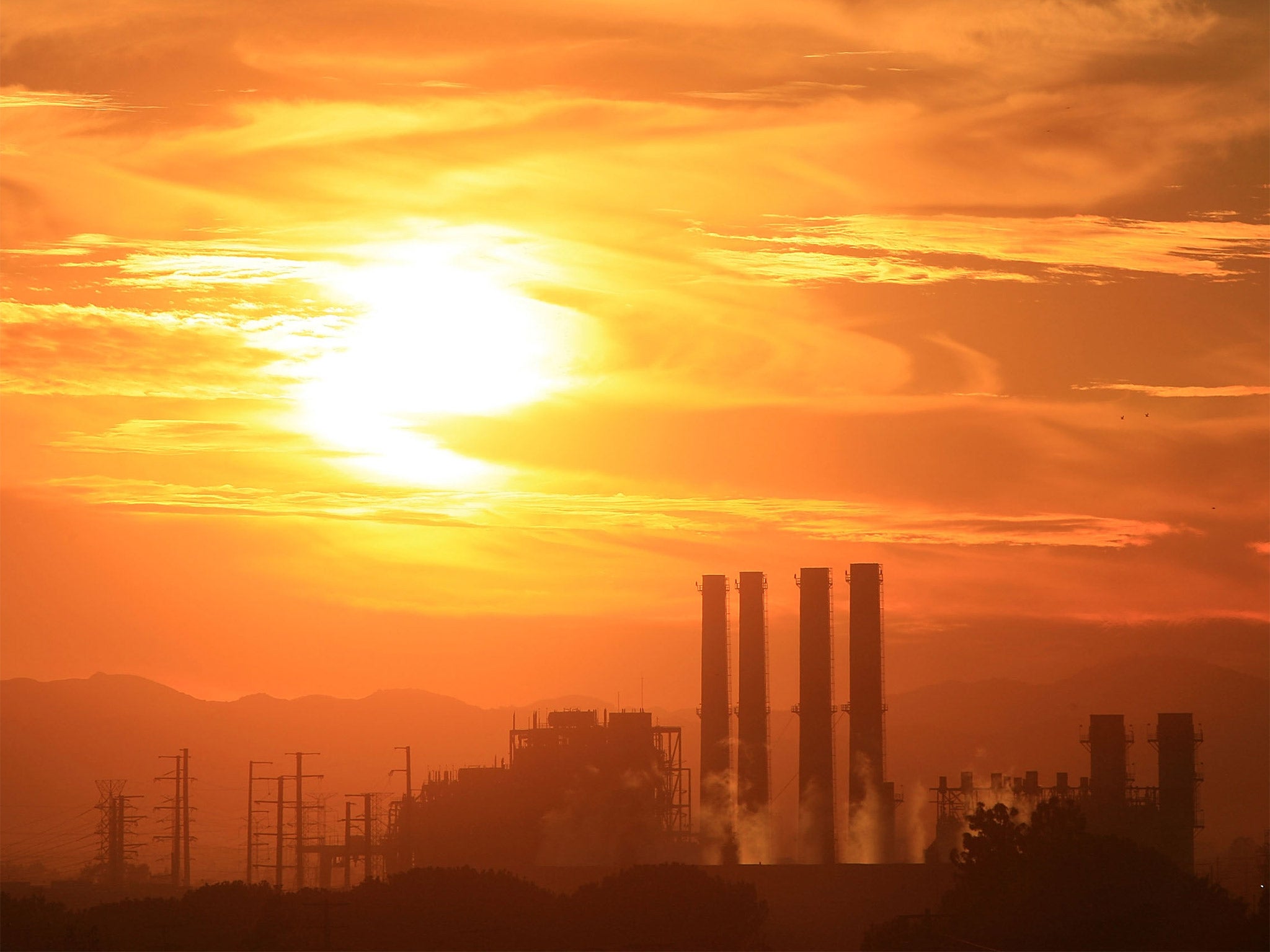Planned curbs in greenhouse gas emissions won't prevent global warming 'danger limit' being reached, warns report
Study says temperatures will still rise more than 2C despite planned reductions

Your support helps us to tell the story
From reproductive rights to climate change to Big Tech, The Independent is on the ground when the story is developing. Whether it's investigating the financials of Elon Musk's pro-Trump PAC or producing our latest documentary, 'The A Word', which shines a light on the American women fighting for reproductive rights, we know how important it is to parse out the facts from the messaging.
At such a critical moment in US history, we need reporters on the ground. Your donation allows us to keep sending journalists to speak to both sides of the story.
The Independent is trusted by Americans across the entire political spectrum. And unlike many other quality news outlets, we choose not to lock Americans out of our reporting and analysis with paywalls. We believe quality journalism should be available to everyone, paid for by those who can afford it.
Your support makes all the difference.The planned curbs in greenhouse gas emissions by the nations of the world fall well short of what is required to avoid global average temperatures exceeding the “danger limit” of 2C this century, a report has warned.
An analysis of the pledges made by countries attending the climate summit in Paris this December has found that the promised reductions as they stand will still exceed the amount of greenhouses gases widely considered to breach of the safe threshold, it says.
The authors of the report have called on nations to be more ambitious in their promises for reductions of the carbon dioxide and other greenhouse gases that scientists have found are largely responsible for the rise on global average temperatures over recent decades.
The analysis by the Grantham Research Institute and the Centre for Climate Change Economics and Policy at the London School of Economics found serious shortcomings in what countries have suggested for their future annual emissions, and what is actually needed as the basis of an international treaty in Paris – widely considered the most important climate summit yet.
Recent estimates by the United Nations Environment Programme have suggested that there is a 50 to 66 per chance of limiting the rise in global temperatures to within 2C if annual worldwide emissions of greenhouse gases stabilise at between 32bn and 44bn tonnes by 2030.
However, the Grantham report found that the European Union, the United States and China together are proposing annual emissions of between 20.9bn and 22.3bn tonnes of greenhouse gases by 2030.
This means that the pledges for emissions from the rest of the world should not exceed about 23bn tonnes in 2030. However, the current and planned policies of these nations suggest that their annual emissions alone will rise to about 35bn tonnes by 2030.
This would result in a combined total for the world’s emission of up to 57bn tonnes, and a gap of at least 13bn tonnes between what is pledged and what is needed.
It is unlikely that the pledges from all countries before the Paris summit will collectively be sufficient to bridge the gap to an emissions pathway that is consistent with the limit of 2C, say the report’s authors, who include Lord Stern, the chair of the Grantham Research Institute and leader of 2006 Stern Review on the economics of climate change.
“There is a gap between the emissions pathway that would result from current ambitions and plans, and a pathway that is consistent with the global warming limit of 2C. Consequently, countries should be considering opportunities to narrow the gap before and after the Paris summit,” the report says.
“The ambitions and plans agreed at the Paris summit in December 2015 should be regarded as a critical initial step. It is also important that countries make pledges that are credible,” it says.
“However, the magnitude of the gap between current intentions and the international target of limiting global warming to no more than 2C clearly shows that an international agreement in Paris will have to include dynamic mechanisms for assessment of progress and the raising of ambitions,” it adds.
“[Paris] should not be regarded as just a one-off opportunity to fix targets.”
Join our commenting forum
Join thought-provoking conversations, follow other Independent readers and see their replies
Comments